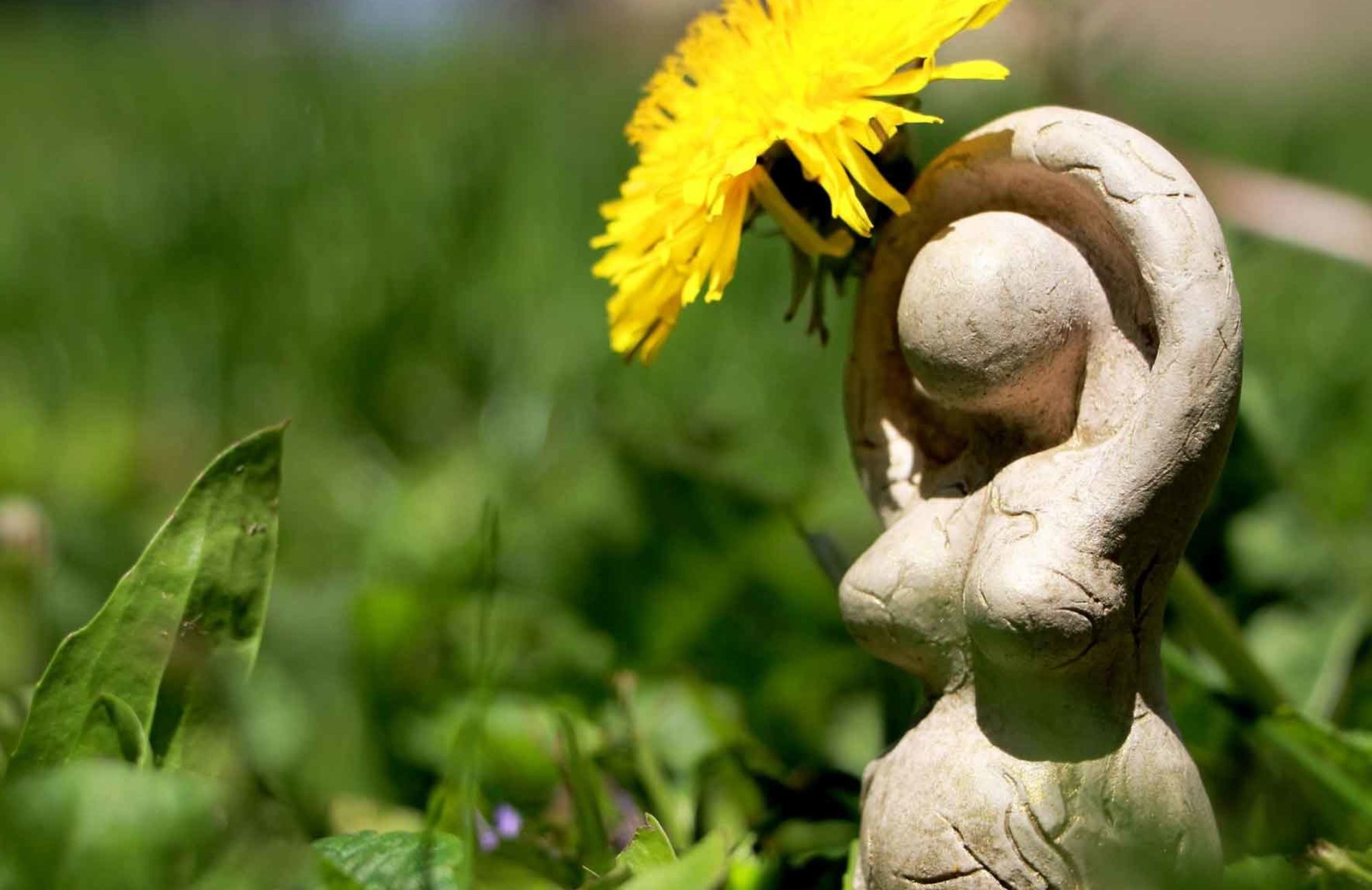We are honored to announce that we will present our first-ever Brigit Award for Excellence in the Arts to Layne Redmond at our East Coast Symposium on March 12.

In the 1980’s, while working with percussionist Glen Velez and conducting research on the history and playing styles of the frame drum (a small hand-held drum of which the tambourine is one notable example), Layne Redmond began to notice that virtually all ancient Mediterranean and middle eastern images featuring this drum showed the player as a woman in a ritual setting. This discovery led to her lifelong work of sharing this knowledge and reviving the practice of goddess priestessing with frame drum. For fifteen years, she researched the history of this drum in religious and healing rites in the ancient Mediterranean world.
ne fruit of Layne’s work, When the Drummers Were Women, a Spiritual History of Rhythm, was published by Random House in 1997 to great acclaim. This book, a masterful example of independent scholarship, continues to inspire both scholars and musicians. This book details a lost history of a time when women were the primary percussionists in the ancient world and also explains why they are not today.
Layne assembled, taught, and led The Mob of Angels, a group of women who conducted deeply moving public ritual performances throughout the 1990s and New York City and beyond.
She has numerous exceptional recordings to her credit. Invoking Aphroditefeatures the poetic works of Sappho, the Pythia Priestesses of Delphi, and the Epitaph of Seikilos (the oldest notated musical composition found to date).
Layne has taught at venues from colleges to retreat centers to gatherings of professional percussionists.
In recent years, she made pilgrimage to Cyprus, where her workshops and retreats have resulted in Cyprian women’s reviving the worship of great goddess Aphrodite via rituals with frame drum.
Layne has also researched and revived the “sacred path of the bee,” the tools of the ancient bee priestesses, and has released Hymns from the Hive, a CD celebrating this path.
Most recently, she has released a 6-DVD Frame Drum Intensive Training Program.
More information about Layne Redmond can be found on her website, throughmany youtube clips, and on her Facebook page.
 If you are frequently searching for images from art history or archaeological sites, you might want to add California State University’s WorldImages site to your bookmarks. This site contains more than 80,000 images which you are free to use for non-profit educational purposes, provided that you credit the copyright holders of those images. The database began as a collection used for teaching a survey art history course, but it has grown to include images appropriate for all grade levels.
If you are frequently searching for images from art history or archaeological sites, you might want to add California State University’s WorldImages site to your bookmarks. This site contains more than 80,000 images which you are free to use for non-profit educational purposes, provided that you credit the copyright holders of those images. The database began as a collection used for teaching a survey art history course, but it has grown to include images appropriate for all grade levels.




You must be logged in to post a comment.